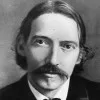He had never before been quite so acutely aware of the particular quality and function of November, its ripeness and its hushed sadness. The year proceeds not in a straight line through the seasons, but in a circle that brings the world and man back to the dimness and mystery in which both began, and out of which a new seed-time and a new generation are about to begin. Old men, thought Cadfael, believe in that new beginning, but experience only the ending. It may be that God is reminding me that I am approaching my November. Well, why regret it? November has beauty, has seen the harvest into the barns, even laid by next year’s seed. No need to fret about not being allowed to stay and sow it, someone else will do that. So go contentedly into the earth with the moist, gentle, skeletal leaves, worn to cobweb fragility, like the skins of very old men, that bruise and stain at the mere brushing of the breeze, and flower into brown blotches as the leaves into rotting gold. The colours of late autumn are the colours of the sunset: the farewell of the year and the farewell of the day. And of the life of man? Well, if it ends in a flourish of gold, that is no bad ending.
Ellis Peters (1913-1995) English writer, translator [pseud. of Edith Mary Pargeter, who also wrote under the names John Redfern, Jolyon Carr, Peter Benedict]
Brother Cadfael’s Penance, ch. 1 (1994)
(Source)
Quotations about:
winter
Note not all quotations have been tagged, so Search may find additional quotes on this topic.
In winter I get up at night
And dress by yellow candle-light.
In summer quite the other way,
I have to go to bed by day.Robert Louis Stevenson (1850-1894) Scottish essayist, novelist, poet
Poem (1885), “Bed in Summer,” st. 1, A Child’s Garden of Verses
(Source)
No matter how black, white, male, female, Irish, German, tall, short, ugly or pretty you felt this year, you are part of a family that has been targeted by an unforgiving cosmos since its inception but has, regardless, survived. If a TV show about this family were to be created, you would very, very much enjoy it, and pay very much money for several seasons of it on DVD, because humanity, warts and all, is an inherently heroic species that has spent about 99.99% of its short lifetime as an underdog. And If you see no billboards telling you that, it’s not because it’s not true. It’s because there’s little to no profit to be made telling you.
I could go on and on about the suffering we’ve endured and the adaptations we’ve made, but to me, our species’ crowning jewel is that on the shortest day of the year, when the sun spends most of its time swallowed, when everything is frozen, when nothing can grow, when the air is so cold our voices stop right in front of our faces … we put a string of lights on a universe that is currently doing nothing to earn it. We not only salvage an otherwise desolate time of year, we make it the best time of year.
Dan Harmon (b. 1973) American writer, producer, entertainer
“Drunk High Christmas Greetings!” blog entry, DanHarmon.com (26 Dec 2008)
(Source)
Heap on the wood! — the wind is chill;
But let it whistle as it will,
We’ll keep our Christmas merry still.Walter Scott (1771-1832) Scottish writer, historian, biographer
Marmion, Canto 6, Introduction (1808)
(Source)
“I have often thought,” says Sir Roger, “it happens very well that Christmas should fall out in the middle of winter. It is the most dead uncomfortable time of the year, when the poor people would suffer very much from their poverty and cold, if they had not good cheer, warm fires, and Christmas gambols to support them. I love to rejoice their poor hearts at this season, and to see the whole village merry in my great hall.”
Joseph Addison (1672-1719) English essayist, poet, statesman
Essay (1712-01-08), The Spectator, No. 269
(Source)
Quoting Roger de Coverley. While the more frequent shorter excerpt (as in the image) conjures up enjoyment of the winter season, the broader quote demonstrates a noblesse oblige regarding the poor in winter.
The coldest winter I ever spent was a summer in San Francisco.
Mark Twain (1835-1910) American writer [pseud. of Samuel Clemens]
(Spurious)
Frequently attributed to Twain, but undocumented in any of his writings. The origin of the phrase seems to be in a letter from Horace Walpole to Mary Berry (29 Jul 1789), attributing a quip to the English actor James Quin:Quin, being once asked if he had ever seen so bad a winter, replied, “Yes, just such an one last summer!” -- and here is its youngest brother!
Twain, in turn, mentioned the observation in a letter to Lucius Fairchild (28 Apr 1880), using it to denigrate Paris, France:For this long time I have been intending to congratulate you fervently upon your translation to -- to -- anywhere -- for anywhere is better than Paris. Paris the cold, Paris the drizzly, Paris the rainy, Paris the Damnable. More than a hundred years ago, somebody asked Quin, "Did you ever see such a winter in all your life before?" "Yes," said he, "last summer." I judge he spent his summer in Paris.
When "coldest winter ... summer" phrase first achieved popularity in that form (around 1900 or earlier), the targeted city was Duluth, Minnesota, followed by other cities in Minnesota and Wisconsin, before being grafted onto San Francisco and, again, Mark Twain.
More discussion about this quotation:
Every mile is two in winter.
George Herbert (1593-1633) Welsh priest, orator, poet.
Jacula Prudentum, or Outlandish Proverbs, Sentences, &c. (compiler), # 949 (1640 ed.)
(Source)
With heapy Fires our chearful Hearth is crown’d;
And Firs for Torches in the Woods abound:
We fear not more the Winds, and wintry Cold,
Than Streams the Banks, or Wolves the bleating Fold.[Hic focus et taedae pingues, hic plurimus ignis
semper, et adsidua postes fuligine nigri;
hic tantum Boreae curamus frigora, quantum
aut numerum lupus, aut torrentia flumina ripas.]Virgil (70-19 BC) Roman poet [b. Publius Vergilius Maro; also Vergil]
Eclogues [Eclogae, Bucolics, Pastorals], No. 7 “Meliboeus,” l. 49ff (7.49-52) [Thyrsis] (42-38 BC) [tr. Dryden (1709), l. 70ff]
(Source)
Francis Bacon refers to Virgil's use of a Latin proverb about wolves not caring about the numbers of sheep they face.
(Source (Latin)). Alternate translations:A hearth, fat Pyne, nor ample fire we lack,
With daily smoke, our Chimney peeces black:
The cold of Boreas here we fear no more,
Than Wolves our Cattell, or fierce streams the shore.
[tr. Ogilby (1649)]Here on this hearth, with resinous billets piled,
The pine-branch blazes; and the rafters, soil'd
With constant smoke, bespeak the warmth within:
Nor more we care for winter's snow-clad scene
Than wolves respect the numbers of the fold,
Or streams their banks, in mountain-torrent rolled.
[tr. Wrangham (1830), l. 67ff]Here is a glowing hearth, and resinous torches; here is always a great fire, and lintels sooted with conitnual smoke. here we just as much regard the cold of Boreas, as either wolf does the number [of sheep], or impetuous rivers their banks.
[tr. Davidson (1854)]Warm hearth, good faggots, and great fires you'll find
In my home: black with smoke are all its planks:
We laugh, who're in it, at the chill north wind,
As wolves at troops of sheep, mad streams at banks.
[tr. Calverley (c. 1871)]Here is a glowing hearth, and oily brands of pine, here an everblazing fire, and door-posts black with never-ceasing soot; sitting here we heed the chilly blasts of Boreas just as much as the wolf heeds the number of the flock, or torrent floods the bank.
[tr. Wilkins (1873)]Great store of wood, the unctuous pine.
The smoke-stained rafter, all are mine:
I fear no more the northern cold
Than floods the reeds, or wolves the fold.
[tr. King (1882), l. 648ff]Here with fat logs heap'd up for winter store,
Plenty as heart could wish, our fagots roar:
With smoke the groins and girders always black,
And boar's chine seasoning in the chimney rack,
We care as much for the North wind or frost,
As wolves for number of the fleecy host,
Or mountain torrent for its bank, when first
O'er granite peaks a lowering cloud has burst.
[tr. Palmer (1883)]Here is a hearth, and resinous logs, here fire
unstinted, and doors black with ceaseless smoke.
Here heed we Boreas' icy breath as much
as the wolf heeds the number of the flock,
or furious rivers their restraining banks.
[tr. Greenough (1895)]Here is a glowing hearth, and resinous torches ; here is always plenty of fire, and lintels blackened with continual smoke. Here we as much regard the cold of Boreas as either the wolf does the number [of the sheep], or foaming rivers their banks.
[tr. Bryce (1897)]Here is the hearth and resinous billets; here the fire ever burns high and the doorposts are black with constant soot: here we care as much for the freezing North as the wolf for the flock's multitude, or rivers in flood for their banks.
[tr. Mackail (1899)]Here glows a ruddy hearth, with pitch pine logs
Ever alight -- and doorposts, black with smoke.
We heed no more the northern cold, than does
The wolf the flock, or flooded streams their banks.
[tr. Mackail/Cardew (1908)]My hearth is piled with faggots of pitch-pine.
Free burns my faithful fire, and every hour
My walls are black with smoke; we heed no more
The frosts of Boreas than the wild wolf fears
The gathered sheep, or swollen stream its shore.
[tr. Williams (1915)]With me you will find a hearth and pitchy brands; with me a good fire ever blazing and doorposts black with many a layer of soot. Here we care as much for the chill blasts of Boreas as the wolf for the number of sheep or rushing torrents for their banks.
[tr. Fairclough (Loeb) (1916)]Here are fires never-failing and pine-faggots good
Under soot-blackened rafter we laugh at the cold,
As high banks are laught at by rivers in flood,
Or as one wolf derideth the numberless fold.
[tr. Royds (1922)]Here is the hearth, logs rich in resin, a big fire all the time, and doorposts blackened by the constant smoke. We care as little here about the North Wind and the cold as a wolf cares for numbers, or rivers for their banks in time of spate.
[tr. Rieu (1949)]Here we have pitch-pine logs and a blazing hearth-fire
With uprights always sootily flagged: we are harassed
No more by northern blizzards than wolves are flustered
By sheep in hosts or torrents by bordering boulders.
[tr. Johnson (1960)]Oh here’s a hearth and pine logs in plenty,
doorposts black with winter-long smoke:
What are sheep-hordes to wolf, or high banks to flood-water?
what do we care for the north wind’s cold stroke?
[tr. Day Lewis (1963)]We have a hearth with a fire that's always going,
Fed with resiny pinelogs from the woods;
Doorposts black with soot; we're bothered by
The winter cold no more than wolves by sheep
Or torrents by the banks that try to hold them.
[tr. Ferry (1999)]Here is a hearth, and soaked pine torches, here a good fire
always, and door posts ever black with soot:
here we care as much for the freezing Northern gale,
as wolves for counting sheep, foaming rivers for their banks.
[tr. Kline (2001)]Here is the hearth and the well-fueled torches, here
there's always an abundant fire, and the doorposts
are black with constant soot. Here we heed the
North Wind's blasts just as much as the wolf heeds
the number or the raging rivers heed their banks.
[tr. Bestiara Latina (2006)]
God gave us our memories so that we might have roses in December.
J. M. Barrie (1860-1937) Scottish novelist and dramatist [James Matthew Barrie]
(Misattributed)
Barrie certainly popularized the quotation -- to the extent that everyone attributes it to him. But review his actually use of the phrase in his Rectoral Address, "Courage," at the University of St. Andrews, Scotland (1922-05-03):You have had many rectors here in St. Andrews who will continue in bloom long after the lowly ones such as I am are dead and rotten and forgotten. They are the roses in December; you remember someone said that God gave us memory so that we might have roses in December. But I do not envy the great ones. In my experience -- and you may find in the end it is yours also -- the people I have cared for most and who have seemed most worth caring for -- my December roses -- have been very simple folk.
Barrie himself credits the quotation to "someone said," and trusts that it is familiar enough that others will recognize the reference.
It appears that Barrie is paraphrasing another popular saying of the time, also generally attributed to "someone said" or "Anonymous":Memory was given to mortals that they might have roses in December.
[Source (1920), Source (1905), Source (1902), Source (1900)]
In short, Barrie originated the popular phrasing of the quotation, but the link between gift of "memory" and "roses in December" predates him (as he acknowledges).
Further discussion of this quotation's origins (and a call-back to me for my contributions): Quote Origin: God Gave Us Memory So That We Might Have Roses in December – Quote Investigator®.














